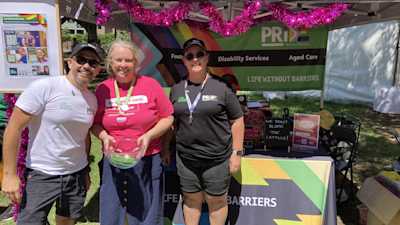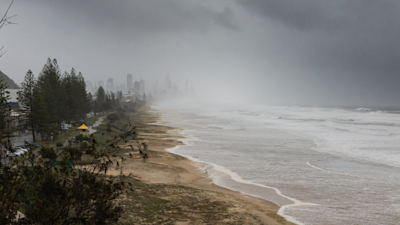In the lead up to International Women’s Day, meet the incredible Life Without Barriers staff providing holistic support to those experiencing forced marriage.
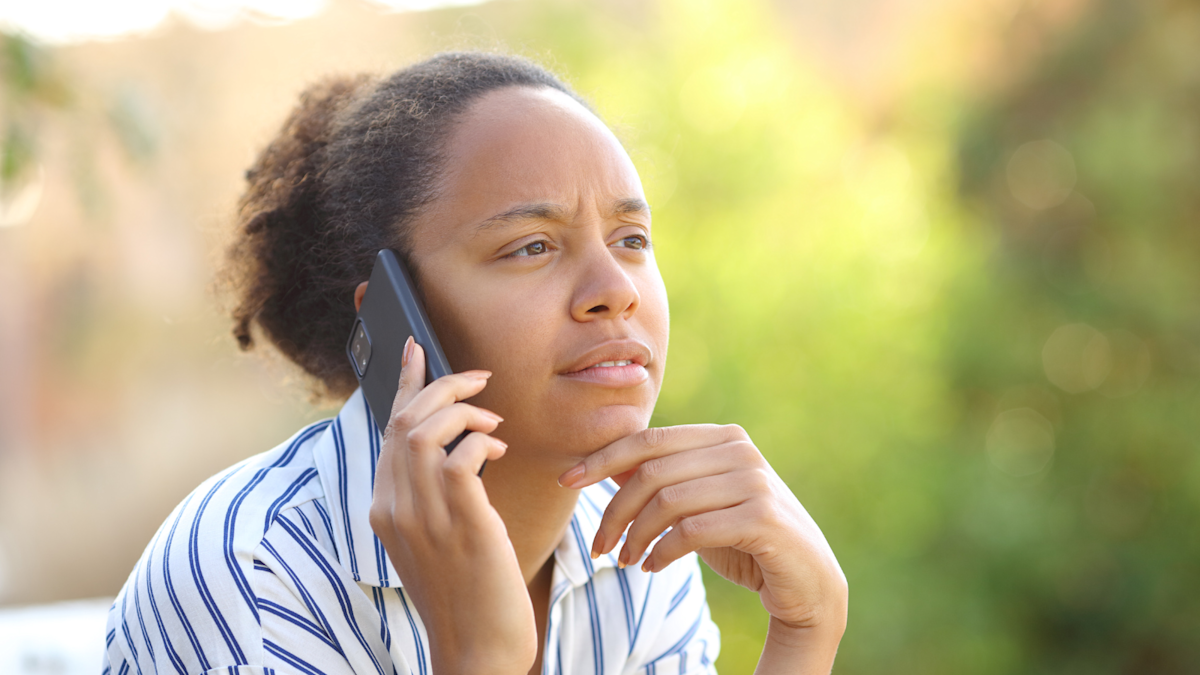
Image: A women wearing a striped shirt is sitting outside and holding a phone to her ear.
For Sara Lackner, a passion for social justice has driven her every pursuit – from her interest in social work to supporting asylum seekers living in the Australian community.
Now, as the Operational Lead of Life Without Barriers' Forced Marriage Specialist Support Program (FMSSP), and with more than a decade’s worth of experience, Sara is proud to be guiding a program that empowers individuals to take bold action in their lives.
"It's such an honour to work with people who have overcome such challenges and who have shown such resilience," Sara said.
The program, which provides support to people experiencing forced marriage, as well as those at risk, is a first of its kind for Australia.
For Sara, the fact that the program addresses the issue from multiple approaches is crucial. It not only provides much needed support to people experiencing forced marriage, but also plays a key role in preventing forced marriages actually happening through strategic community engagement and education.
"There's two levels of prevention because we're equipped to prevent a forced marriage from occurring when it's already being planned, and we're also in a position to prevent a forced marriage from being planned in the first place."
Excitement around the FMSSP’s potential to create meaningful change in the lives of those experiencing forced marriage is shared by Sara’s colleague Sophie Cavanagh, the FMSSP’s Operations Manager.
Sophie, who also has a background in social work, has spent much of her career supporting people with lived experience of complex issues including torture, trauma and exploitation.
But it was in her most recent work, managing the Victorian arm of the Australian Red Cross’s Support for Trafficked People Program (STPP), that Sophie worked alongside people who had experienced forced marriage, and witnessed a major barrier to people accessing support.
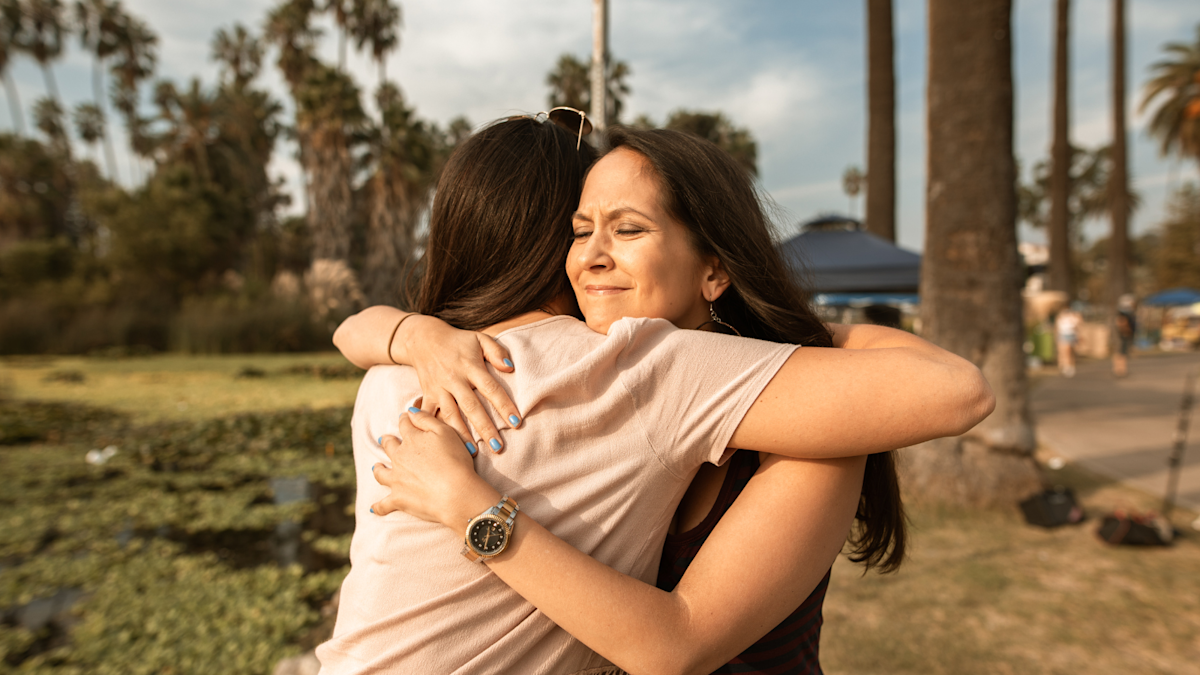
Image: Two women are standing outside and hugging.
Until recently, people impacted by forced marriage could only access support if they were willing to engage with the criminal justice system, which was a major hurdle for victim-survivors who were experiencing pressure from their own families.
"Some of the biggest barriers [for people experiencing forced marriage] have been around not wanting their family to get in trouble," Sophie said.
It comes as no surprise then that Sophie is glad to be a part of the new program which doesn’t require people seeking support to go down the criminal justice route. As many have put it, this change is a total game-changer.
"It ultimately makes the program much, much more accessible," she says.
Increasing accessibility to support, and empowering people, no matter who they are, to make choices that are best for them is a key tenant of the new program.
Just like Sara, for Sophie, the program’s potential to create generational change in the lives of young people so they're more informed about options available to them, is what makes working on the forced marriage program that much more meaningful.
Given its social complexity, forced marriage is often misunderstood and there can be assumptions made about the people who are most likely to experience it.
But in the two months the program has been live at Life Without Barriers, any notion of a 'typical' person needing this kind of support has not been apparent, something Eriona Shirokaj, who oversees the program’s intake, can attest to.
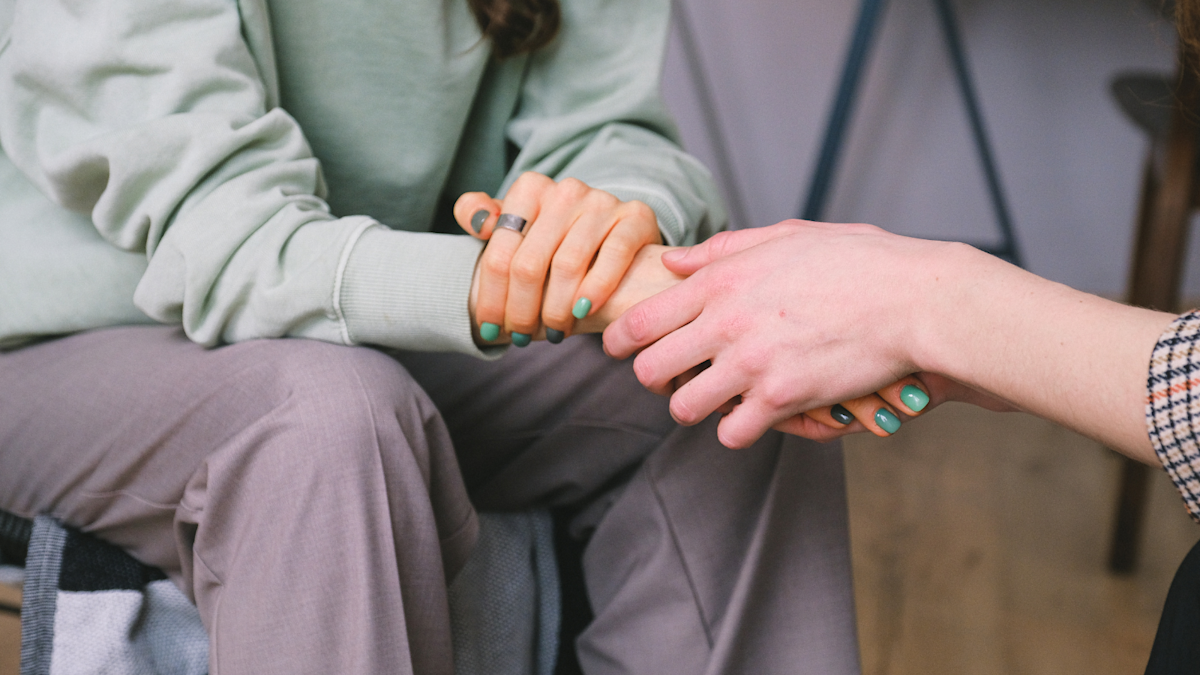
Image: Close up photo of two women holding hands. One person is comforting the other.
People reaching out for support on forced marriage have been from a broad range of cultural backgrounds, socio-economic statuses and, in what could be surprising to some, gender, Eriona shared.
While people impacted by forced marriage tend to skew younger and be women, it’s fundamental that services and the community at large understand that it can happen to anyone.
Eriona’s experience directly mirrors sentiments shared by Panos Massouris, Director of the National Immigration Support Service, who is heading up the specialist program.
"Forced marriage can happen to anyone, regardless of age, gender, ethnicity, culture, or background," Panos stated.
Beyond this, with a deep understanding of the refugee experience, Eriona knows all too well how important it is for programs and services to understand the nuanced experiences of the people they serve and not put people into boxes.
In particular, she knows that by not making assumptions about anyone’s experience, you can make a real difference in people’s lives.
"We've been able to create so many pathways to support people which has been pretty exciting."
Get support - help is here
Life Without Barriers is dedicated to providing discreet and accessible support to those in need. If you or someone you know is experiencing, or is at risk of experiencing, forced marriage, there are several ways to access support:
Call 1800 403 213 for a confidential conversation with a trained support worker.
Visit the Life Without Barriers forced marriage page to register for support and learn more about available resources.
National Help Lines: In case of immediate danger, contact the National Domestic Violence Helpline at 1800 737 732 or 1800RESPECT for text and online services.
Life Without Barriers is funded by the Department of Social Services to provide the Forced Marriage Specialist Support Program. Further information is available on the Department of Social Services website.
